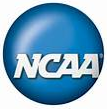When Life After Sports Leads To Eating Disorders & Addiction
I need your help.
Do you know an NCAA athlete who developed an eating disorder or substance abuse problem during or after leaving their sport? If so, please let me know. I’m developing a piece on the difficult transition for the elite college athlete returning to the real world, and how a growing share of these young men and women are losing their way, falling into life-threatening eating disorders and substance abuse.
My daughter and thousands of other exceptional young people are part of this story. And I’m asking you to contribute your account and its unique perspective. The more real life examples and different stories we can bring together, the more complete the picture can become, and the better we can present the full dimension of the challenge.
So here’s the exciting thing. I believe this is one very big challenge that we actually should be able do something about. Because we are dealing with a definable group of highly driven people (the athletes), at an identifiable time in their lives, we are looking at the rare opportunity to tackle three critical goals:
-
Properly equip and prepare the athlete to complete a successful transition from the structured life of the disciplined athlete, to the wide open spaces of rest of their lives
-
Help lead those who have become lost, out of their darkness
-
Over time, demonstrate how addiction, including eating disorders, is preventable and can be overcome
You might be asking yourself, why isn’t NCAA already doing something about this? And the simple asnwer is, they are using all the tools at their disposal. NCAA in fact is very aware of this problem, and has been training its member colleges and universities to follow established protocols of early detection and referral of symptomatic athletics to counseling and treatment. But as we see elsewhere, where current addiction industry principles and practices are employed, their best efforts produce little to no success.
NCAA has shown itself to be genuinely concerned with the health and fitness of college athletes both during and beyond their college years. Unlike other organizations facing the daunting challenge of confronting addiction, though they rely on information based on established addiction doctrine, the NCAA operates outside the industry. And as such, it need not carry the burden of upholding the traditions and teachings that sustain the vast industry. Rather, NCAA’s sole focus can be the well being of their athletes, and for that reason, might be more likely to embrace new strategies built on sound data and valid understanding, to help athletes go on to enjoy the rewarding lives intended for them.
Please help us add a new dimension to the picture by adding your story. The final presentation will tell the compelling story of these accomplished young athletes facing one of their greatest hurdles – re-entry to life after _____ (fill in sport), and the start of their post-collegiate lives.
If you wish, I invite you to put your story in the comments section, or you are welcome to email them to me at pwhlewis@gmail.com.
I am not affiliated with NCAA or any of its member organizations, nor are they yet participants in this effort. My goal, with your help, is to offer them a better way to help their athletes continue to enjoy success in life.
I sincerely thank you for trusting me with your story. I will treat it with the respect it deserves.
